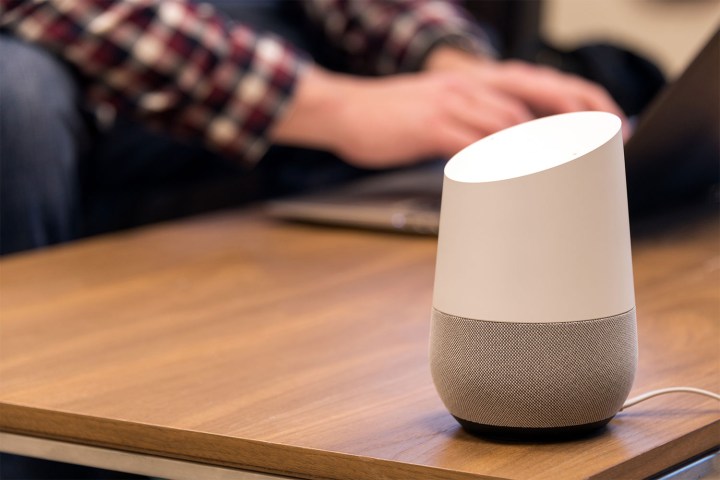
Although there are certainly a lot of benefits to moving toward audio-based digital interaction through assistive software like Siri, Google Home, or Alexa, companies are still looking at how they can derive advertising revenue through it. Although Google denies it, its recent Beauty and the Beast mention does suggest it’s trialling a new method of income generation on these sorts of audio platforms.
During his morning update from Google Home, Twitter user Brysonmeunier found himself listening to information about the Beauty and the Beast movie, complete with music and an offer to learn more if he asked a question. It was unprompted and easily interpreted as an ad. Not according to Google though.
https://twitter.com/brysonmeunier/status/842358950536318976
“This isn’t an ad; the beauty in the Assistant is that it invites our partners to be our guest and share their tales,” a spokesperson for the company said in a statement (via BusinessInsider).
Google has however, since removed the mention of the film from Google Home and released a follow-up statement:
“This wasn’t intended to be an ad. What’s circulating online was a part of our My Day feature, where after providing helpful information about your day, we sometimes call out timely content. We’re continuing to experiment with new ways to surface unique content for users and we could have done better in this case.”
Although there have been claims from ‘sources familiar’ with the matter that Google was not paid for this mention, it’s possible that this was merely a trial run of a potential advertising system. Perhaps a way to prove the efficacy of the platform for advertising in the future.
Whatever people feel about the acceptability of such an ad, the fact remains that if Google encourages a large portion of its user base to begin using voice-driven interaction, it will need to find a way to monetize it. But it remains to be seen if there is an effective way to make money from voice assistants that won’t annoy consumers.



